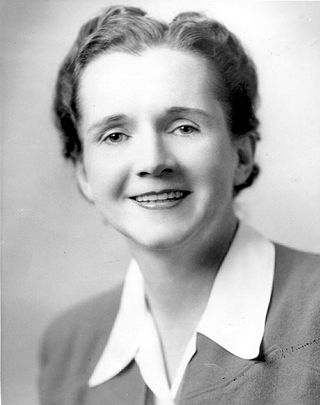
Rachel Louise Carson was an American marine biologist, writer, and conservationist whose sea trilogy (1941–1955) and book Silent Spring (1962) are credited with advancing marine conservation and the global environmental movement.

Willamette University is a private liberal arts college with locations in Salem and Portland, Oregon. Founded in 1842, it is the oldest college in the Western United States. Originally named the Oregon Institute, the school was an unaffiliated outgrowth of the Methodist Mission. The name was changed to Wallamet University in 1852, followed by the current spelling in 1870. Willamette founded the first medical school and law school in the Pacific Northwest in the second half of the 19th century.
Valdimer Orlando Key Jr. was an American political scientist known for his empirical study of American elections and voting behavior. He taught at Johns Hopkins University and Harvard.
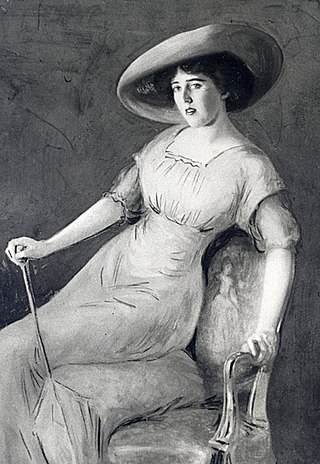
Louise Bryant was an American feminist, political activist, and journalist best known for her sympathetic coverage of Russia and the Bolsheviks during the Russian Revolution of November 1917.
Philinda Parsons Rand Anglemyer (1876–1972) was an American English-language teacher in the Philippines. She was among the pioneering five hundred Thomasites who landed on the shores of the Philippines in August 1901 on board the United States Army Transport Thomas.
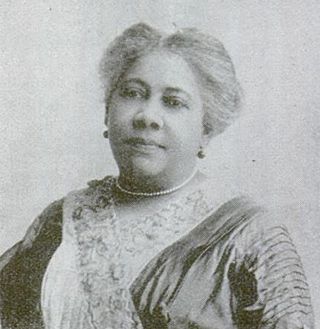
Mary Burnett Talbert was an American orator, activist, suffragist and reformer. In 2005, Talbert was inducted into the National Women's Hall of Fame.

Eaton Hall is an academic building on the campus of Willamette University in Salem, Oregon, United States. Completed in 1909, the four-story brick and stone hall is the fourth oldest building on the campus of the school after Waller Hall (1867), Gatke Hall (1903), and the Art Building (1907). Eaton is a mix of architectural styles and houses the humanities departments of the liberal arts college.
Leona Elizabeth Tyler was an American psychologist and president of the American Psychological Association in 1973.
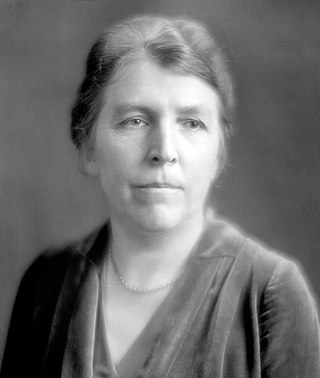
Ada Louise Comstock was an American women's education pioneer. She served as the first dean of women at the University of Minnesota and later as the first full-time president of Radcliffe College.

Mary Caroline Richards was an American poet, potter, and writer best known for her book Centering: in Pottery, Poetry and the Person. Educated at Reed College, in Portland, Oregon, and at the University of California at Berkeley, she taught English at the Central Washington College of Education and the University of Chicago, but in 1945 became a faculty member of the experimental Black Mountain College in North Carolina where she continued to teach until the end of the summer session in 1951.
Jeanne Dost was an American economist, educator, author and political activist who affected both the scholarship and political position of women in Oregon beginning in the 1970s.

Dorothy Murphy Healy was an American educator, historian, and curator. She was Professor of English Literature at Westbrook College, Portland, Maine, where she also served in various administrative capacities. In 1959 she co-founded the Maine Women Writers Collection at the college and built the collection into one of over 4,000 volumes by the time of her death in 1990. She was posthumously inducted into the Maine Women's Hall of Fame in 1993.
Gertrude Bass Warner was an American twentieth-century art collector, with particular interests in Asian art, religious artifacts, daily-life textiles, ceramics, paintings, and photographs. She lived, traveled, and collected art in East Asia from 1904 to 1938. In 1922 she became the curator for life and first director of the University of Oregon Museum of Art at the University of Oregon, helping to design the historic building with famed architect Ellis F. Lawrence. She had the museum built to house the collection of more than 3,700 works of art, the Murray Warner Collection of Oriental Art, named after her late husband, Murray Warner. She donated the collection to the university in 1933. She traveled throughout China, Japan, Korea, and Russia purchasing works of art and artifacts, taking photographs, and writing extensive field notes. She visited thousands of cultural sites and studied Shinto, Buddhism, and Chinese and Japanese etiquette, and the human experience, and became an innovator in the promotion of Asian art and culture appreciation, Asian studies, and multiculturalism. She is considered a female pioneer of museum studies.

Adaline "Addie" Dickman Miller was an American college professor, a founder of the town of Ruskin, Florida, and the co-founder and vice-president of the town's Ruskin College. She patented a design for a dish washer and she was president of two different temperance organizations in Oregon.

Winifred Josephine Robinson (1867–1962) was an American botanist, educator, and educational administrator. As a botanist, she studied ferns and wrote several papers and books. She was the first dean of the Women's College of the University of Delaware, which was founded in 1914.

Sarah Luella Miner was an American educator and a Christian missionary in China from 1887 until her death in 1935. She founded and led the North China Union College for Women, China's first women's college.
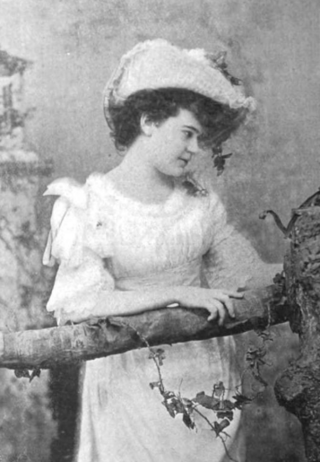
Luella Totten was an American pianist, composer, and music educator. She was also known as Louis von Heinrich.
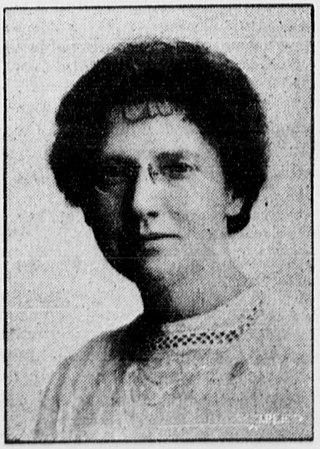
Luella Twining was a journalist, labor organizer and Socialist politician. Twining presided over the ratification meeting during the first convention of the Industrial Workers of the World, representing the American Federal Union. At this convention she was a major advocate of a May 1st "labor day" holiday for workers, stating "We do not want a capitalist Labor Day. Let us have a labor day of our own. Let us have an international labor day, the first day of May."

Luella Wilcox St. Clair Moss was an American educator and suffragist. She was one of the first female college presidents in the United States.














